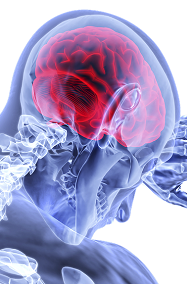| |
If you cannot view this e-mail correctly, please click here. |
|
| |

|
|
|
News from CEA´s European Projects
|
April 16th, 2019 |
|

|
07
|
|
|
|
|
| |
|
|
|
|
| |
|

|
|
Summary
|

|
|
|
|
| |
|

|
Better management for tritium
|

|

|
Smart white canes for the visually impaired
|

|

|
Managing the risk of having a second stroke
|

|

|
Responding to security professionals' needs more effectively
|

|

|
On the path to ‘exascale’ high-performance computing
|
|
|
|
| |
|
|
|
|
|
|
|
|
|
|
|

|
|
|
Managing the risk of having a second stroke
|

|
Europe is developing a decision support and self-management system to inform stroke survivors of the relation between their daily activities and the risk of having a second stroke. The objective is to improve prevention and reduce the number of people who have a second stroke.
The risk factors are well known, 90% of stroke or secondary stroke cases could be averted by encouraging people to adopt healthier lifestyles. Among the potential solutions to this problem, self-management tools based on digital technology are especially interesting (...).
|

|
|
|
|
|
|
|
|

|
|
|
Responding to security professionals' needs more effectively
|

|
Since 2016, end-users of innovative security solutions such as law enforcement authorities and rescue teams have been actively involved in European research and innovation projects in the field of security. This has allowed European R & I actors to provide a response more adapted to the needs of the operational teams.
The Seren project is a European program set up to coordinate research in the field of security as part of the European framework program for research and innovation, H2020 Security (...).
|

|
|
|
|
|
|
|
|

|
|
|
On the path to ‘exascale’ high-performance computing
|

|
In the global race to increase the power of supercomputers, it has become vital to keep improving processor architecture. The ExaNoDe project, coordinated by the CEA, aims to develop new nanoelectronics technologies and disruptive integration solutions to design the first European exascale computing processor.
Brought together within the European technology platform for high-performance computing, ETP4HPC, the 13 European partners in ExaNoDe drew up a research program to overcome the many difficulties of building and operating exascale systems (...).
|

|
|
|
|
|
|
|
|
|
| |
|
|
|
|
| |

|
|
|

|
|
The French Alternative Energies and Atomic Energy Commission (CEA) is a public research organisation working in four main areas: defence and security, low carbon energies (nuclear and renewables), technological research for industry and fundamental research.
Building on its recognised expertise, the CEA takes part in implementing cooperation projects with a wide range of academic and industrial partners. With its 16,000 researchers and employees, it is a major player in European research and is expanding its international presence. In 2017, Thomson-Reuters / Clarivate identified the CEA as the most innovative public research organization in Europe. More information: www.cea.fr/english
|
|
|

|
|
|
| |

|

|
|
|
|
Contact
|

|
Camille Decroix, Press officer
T. +33(0)1 64 50 17 16 | camille.decroix@cea.fr
Commissariat à l'énergie atomique et aux énergies alternatives Centre de Saclay | Bâtiment Siège 447
91191 Gif-sur-Yvette Cedex - France
|
|
|
|
More
|

|
|
|
|
|
|

|
|
|
| |
|
|